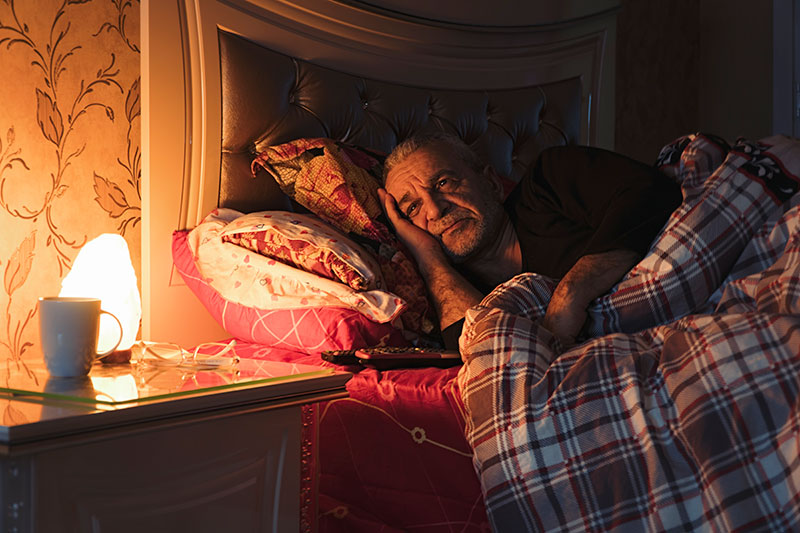Noticing Shifts in Senior Sleep Patterns? Here’s What’s Normal – and What’s Not.


Senior sleep patterns normally shift in aging, but there are some exceptions you’ll need to be aware of.
Ever wonder why Dad falls asleep in the recliner before dinner, then wakes up at 3 a.m. ready to reorganize the garage? Or why Mom suddenly insists on a 7 p.m. bedtime but still wakes up groggy?
These shifts are actually part of a real, age-related change in how we sleep. Understanding senior sleep patterns can take a load off your mind as a family caregiver and help a loved one feel better rested, more alert, and more connected to their daily routine.
Let’s take a closer look at what’s going on, and what you can do to help.
What’s Normal – and What’s Not – When It Comes to Sleep and Aging
Some changes in sleep are expected as we age. In fact, many older adults:
- Sleep fewer total hours at night
- Wake up more often throughout the night
- Have lighter, more fragmented sleep
- Feel sleepy earlier in the evening
- Nap more frequently during the day
These changes are linked to shifts in the body’s circadian rhythm, our internal clock that tells us when to sleep and wake. As we grow older, that rhythm tends to shift forward, leading to earlier bedtimes and earlier wake-up times.
But it’s not always just biology. Many other factors can affect sleep in older adults, including:
- Health conditions: Pain, nighttime urination, breathing issues, or neurological changes can interrupt sleep.
- Medications: Some common prescriptions, like blood pressure meds, antidepressants, or steroids, may cause drowsiness or restlessness.
- Emotional health: Anxiety, depression, or loneliness can make it hard to fall asleep or stay asleep.
- Sleep disorders: Conditions like insomnia, restless leg syndrome, or sleep apnea become more common with age.
When Sleep Becomes a Struggle
After a hospital stay, surgery, or even a small change in routine, sleep can easily become disrupted. It may show up as more daytime naps, trouble falling asleep at night, or early-morning wakeups. Sometimes medications taken too close to bedtime interfere with rest. Pain or discomfort that seems under control during the day may feel more intense at night.
Often, a few practical changes, like shifting medication schedules, adding light exercise to the morning routine, or creating a calming bedtime ritual, can make a real difference. But if sleep disruptions continue or worsen, it’s important to speak with a healthcare provider. Underlying issues like depression, sleep apnea, or medication side effects may be contributing.
How You Can Support Better Sleep at Home
Helping an older adult get more restful sleep often starts with simple, consistent steps:
- Stick to a schedule: Going to bed and waking up at the same time each day supports a healthier sleep rhythm.
- Encourage daily movement: A short walk, light gardening, or gentle stretches can improve nighttime sleep.
- Keep naps short and early: Aim for 20–30 minutes before mid-afternoon to avoid interfering with nighttime rest.
- Avoid caffeine and alcohol late in the day: These can both affect the ability to fall and stay asleep.
- Create a calming bedtime routine: Consider soft music, warm tea, low lighting, or a quiet activity like reading.
- Make the sleep environment comfortable: A dark, cool, and quiet room with cozy bedding can go a long way in promoting deeper rest.
When Professional Support Helps
If daily routines are hard to maintain or if emotional or physical challenges are interfering with senior sleep patterns, a professional caregiver can make a big difference. From engaging daytime activities to soothing nighttime routines, the right support helps restore balance and promotes healthier rest. Call us at (866) 940-4343 to learn more about home care services in Novato, Santa Rosa, Petaluma, and throughout the Bay Area.








Leave a Reply